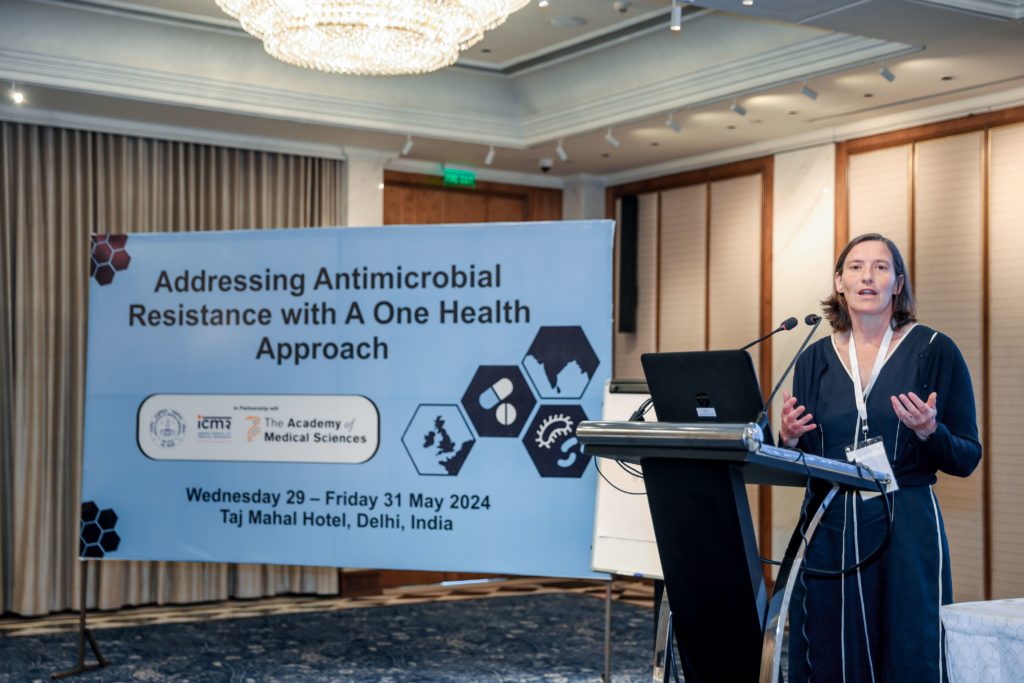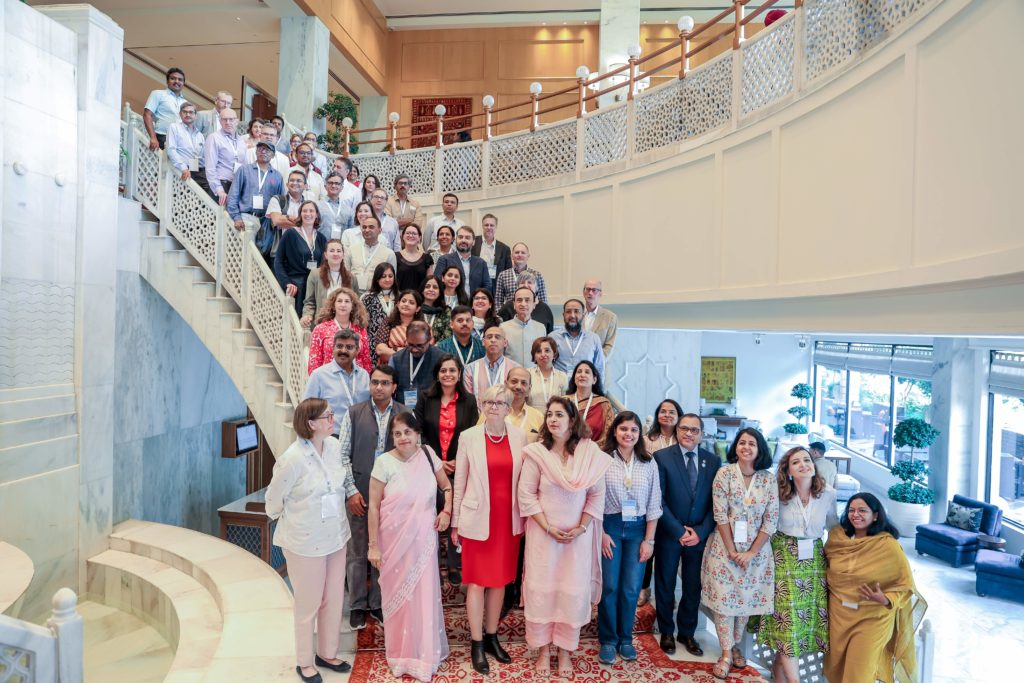Exeter Collaboration for Academic Primary Care (APEx) Blog
Exeter Collaboration for Academic Primary Care (APEx) Blog
Posted by ma403
12 July 2024
At the end of May 2024 I attended a symposium in New Delhi organised by the Indian Council of Medical Research and The Academy of Medical Sciences on ‘Addressing antimicrobial resistance with a One Health approach’. Antimicrobial resistance (AMR) is associated with or directly attributed to around 5 million of deaths a year according to recent estimates. As another measure of the scale of the challenge, AMR is predicted to surpass cancer as a cause of death within twenty years. This alarming prospect is acutely felt by those working in the AMR field but not always reflected in other areas of health policy and health services research I’m involved in.
I find antimicrobial resistance (AMR) interesting from a research perspective because of the complexity of the problem as a global policy issue and because of the need to work across disciplines to seek possible solutions. As part of the steering committee, we tried to bring together researchers and policymakers from India and the UK working across human health, animal health, food production and the environment. AMR research can often be very technical, with people working from the microbe level up, but I found the presentations, discussions and policy workshop that followed were very stimulating. Researchers, clinicals, non-government actors and policymakers were able to talk with enough common language to allow a great exchange of ideas.
Perspectives that stuck in my mind were to have the implications of gender in AMR-policy design discussed (hear about the work of Dr Deepshikha Batheja and colleagues), and the need to learn from, and be challenged by, those working in community engagement. On this last point, Sunita Narain, director general of the Centre for Science and Environment, said that while we can talk about the research gaps, we are at a point where we ‘know enough to act’.
Discussions within AMR meetings can often point to the importance of technological advancements as the solution – how can we best incentivise the development of new antibiotics? How can we improve point of care diagnostics? What is the role of phage therapy? All of which are important but what struck me from this meeting was the return to the importance of clean water and sanitation, universal health coverage, poverty alleviation and strengthening primary healthcare. Importantly, these may not be AMR-focused efforts but nevertheless, we should be recognising that some change can bring co-benefits for AMR and we do not only have to be thinking of AMR specific interventions. There is an opportunity for us, within policy and research, to recognise different windows of opportunity and to integrate consideration of AMR more holistically across broader areas of health and social policy. A final reminder from the symposium – as temperatures outside neared 50 degrees centigrade – was of the interlinkages between climate change and AMR. Through a historical and comparative approach, we have highlighted previously that there is an opportunity for AMR policy not to focus only technological solutions and to consider diverse sources of evidence and social and political implications. Here I am presenting this work at the symposium, outcomes of which will be published later in 2024.
